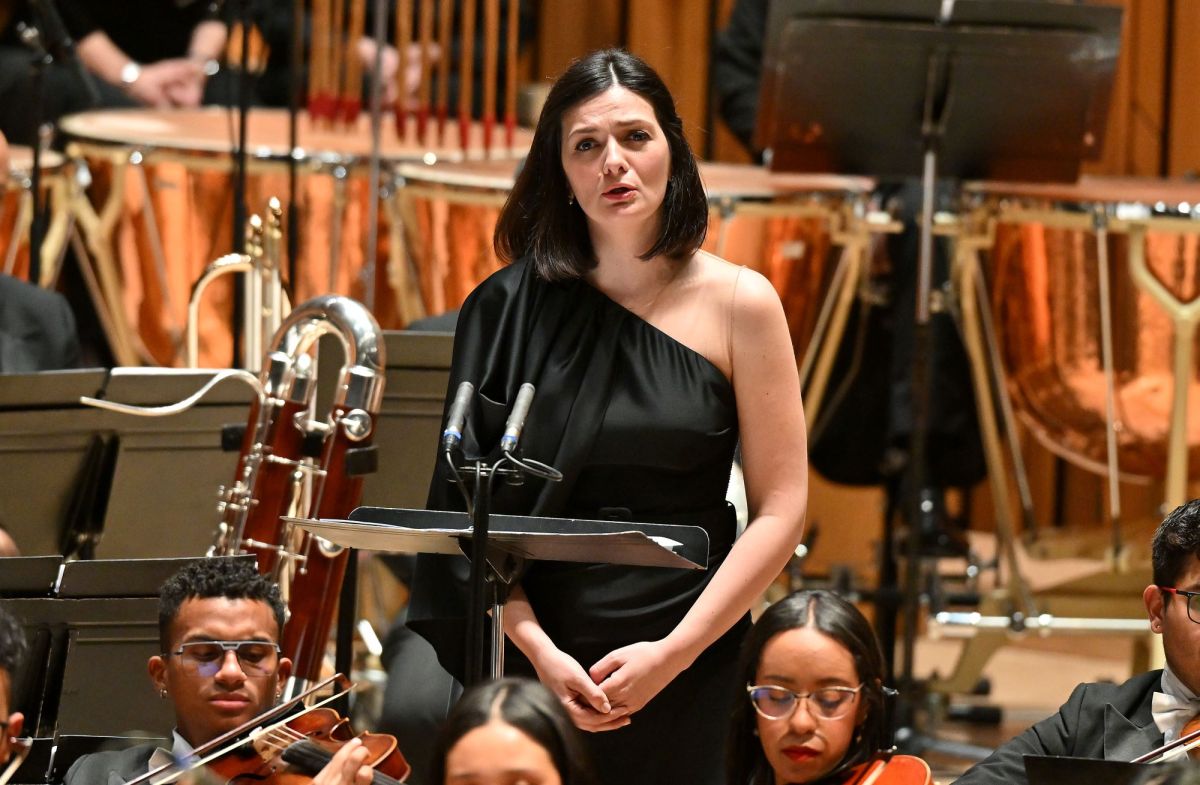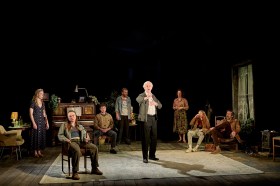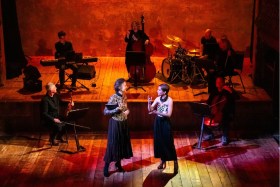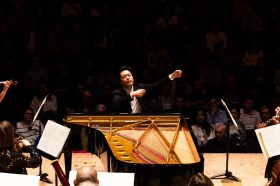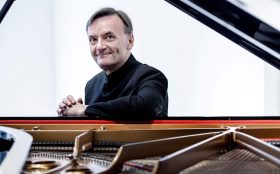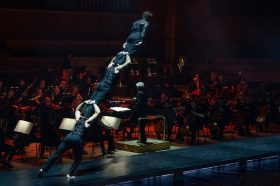It’s easy to see why Gustav Mahler’s astonishing Third Symphony is not performed as often as it deserves – it’s a huge work, written for 120 musicians accompanied by a solo singer and two choirs. Here at the Hall in the Barbican Centre the stage was full to overflowing with musicians and the ladies and children of the choirs perched on high behind the orchestra.
Mahler composed the Third over the summer of 1896 in very much his own style. He deemed it ‘a symphony of nature’, saying of the intense first movement: ‘Pan awakens. Summer marches in with a singing and a ringing and buds and blossoms appear on all sides. And yet, how completely strange and painful it is, the way lifeless nature lies dull and motionless, resisting the advent of life.’ All this and more is captured here, from lyrical echoes of traditional folk songs to militaristic marches and sombre funereal passages.
Conductor Gustavo Dudamel began as he meant to go on with a fulsome and vigorous gestural style, urging his players ever onward. The opening thundered along with the youthful orchestra playing up a storm. Indeed, the first movement that sometimes stretches to 45 minutes was dispatched in just a little over 35 minutes under Dudamel’s racy baton.
Conducting entirely from memory, Dudamel ably proved that he really is a Mahler maestro. He’s also something of a celebrity beyond the hallowed halls of classical music: he was the first classical artist to perform in the US National Football League (NFL) Superbowl half-time show and even has a star on the Hollywood Walk of Fame.
After a well-deserved pause, it was on to the five movements that together make up Part Two of the Symphony. Each has its own character, from quiet and contemplative to bold and brash. French mezzo-soprano Marianne Crebassa entered the stage during the break between Parts One and Two and sat in the middle of the players rather in the usual position alongside the conductor. This worked well as she stood for the short but moving solo of words from Thus Spake Zarathustra by Friedrich Nietzsche, sung in heartfelt German with opera-style surtitles provided in English. Crebassa sang the lines with beautiful pitch and gentle emotionality. Her quiet dignity made a fitting counterpoint to the generally buoyant playing and rather boisterous character of the orchestra.
The massed singers of the London Symphony Chorus – ladies only for this Symphony – and the children of the Tiffin Choirs added a beautifully ethereal touch. (I’m also impressed they could sit still for the 90-plus minutes of the Symphony when they only actually sing for about 15 minutes!)
Read: Don’t miss in January – your monthly guide to the brightest and best arts in London
As always with a Mahler Symphony, there is a lot going on here, especially in that huge first movement. And then some of the most glorious moments come later, including the stellar posthorn solo, played with feeling by Pacho Flores, and that impressive chorale. The climaxes were showy and effervescent with grand flourishes from the brass and percussion. There were a few passages that lacked clarity and times when a little more precision would have been welcome but the overall performance glowed with fervour and humanity.
All this led us inexorably to a magnificent Mahlerian finish with synchronous timpani, woodwind and brass all demanding our attention. After the briefest of moments, the enthusiastic full house was on its feet for a standing ovation.
Gustav Mahler Symphony No 3
Simón Bolívar Symphony Orchestra of Venezuela
Tiffin Choirs and London Symphony Chorus
Conductor: Gustavo Dudamel
Mezzo-soprano: Marianne Crebassa
One performance only, 15 January 2025 at Barbican Hall
